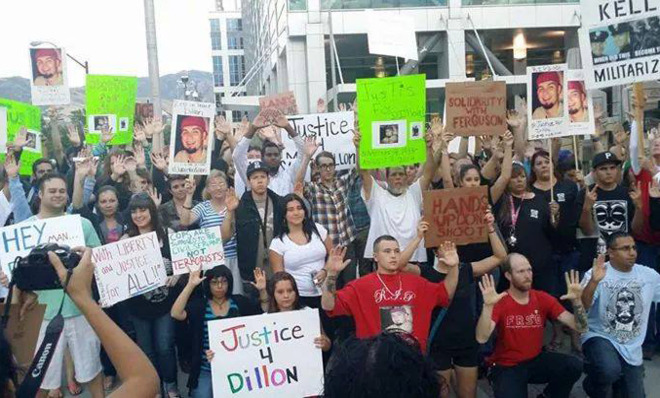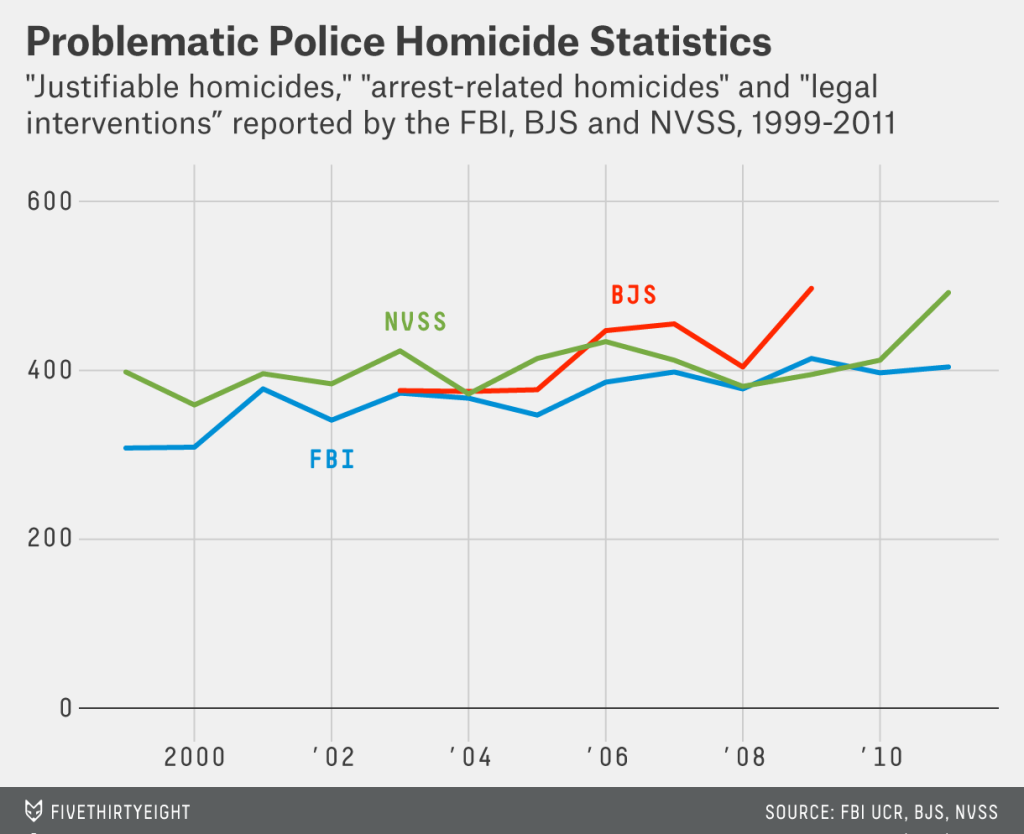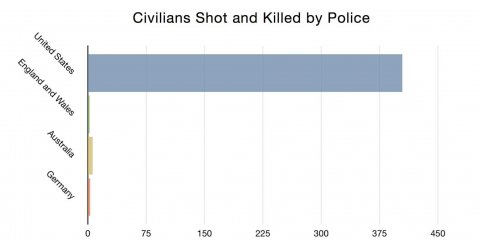The real reason conservatives should be outraged that police killed a white youth
Michael Brown and Dillon Taylor may have been different races. But neither deserved to die that way.


A free daily email with the biggest news stories of the day – and the best features from TheWeek.com
You are now subscribed
Your newsletter sign-up was successful
In the past few days, conservative media outlets from Rush Limbaugh's radio behemoth to The Washington Times, commentary sites to blogs, have discovered the Aug. 11 death of Dillon Taylor, a white 20-year-old gunned down by police outside a Salt Lake City 7-Eleven. The unidentified officer was "not white," and Taylor's brother insists that Dillon was not armed.
The main thrust of the conservative outrage is that the national media is ignoring Taylor's killing while dedicating extensive time and talent to the shooting of unarmed black teenager Michael Brown by a white police officer in Ferguson, Missouri. "The juxtaposition of these two situations," says Townhall's Jack Kerwick, "establishes beyond a doubt that among the motives driving the pro-Michael Brown forces in politics, in the media, and in the streets of Ferguson, a desire for truth and justice isn't one of them."
CNN's Jake Tapper took a stab at the media bias question on Monday. "We don't cover a lot of things enough," he said of the media:
The Week
Escape your echo chamber. Get the facts behind the news, plus analysis from multiple perspectives.

Sign up for The Week's Free Newsletters
From our morning news briefing to a weekly Good News Newsletter, get the best of The Week delivered directly to your inbox.
From our morning news briefing to a weekly Good News Newsletter, get the best of The Week delivered directly to your inbox.
No one would argue that Michael Brown's life means more than Dillon Taylor's.... I think what these questions miss is the fact that that the media attention is less about Brown's death than about the reactions to Brown's death — the reactions of the community in Ferguson, the protests, the anger, the view of his death in the context of other young black men, the reaction of the local police force and others in law enforcement.... [The Lede]
I'm not going to directly speculate as to why the Taylor killing hasn't attracted much attention outside of the Salt Lake City area, until recently. But I think we should all cheer that it is getting national coverage now, thanks to the efforts of conservative commentators. Because police shoot and kill lots of people each year.
We don't actually know how many, though. The FBI compiles statistics of "justifiable police homicides," defined as active-duty officers killing felons. There have been an average of 406 of those reported each year between 1999 and 2011, but as FiveThirtyEight's Reuben Fischer-Baum explains in detail, that number should be treated as an absolute minimum. For starters, the numbers are self-reported by police departments and don't include unjustifiable police homicide.
Still, roughly 400 officer-related civilian deaths is in the ballpark of different, also imperfect statistics compiled by the Centers for Disease Control and Prevention's National Vital Statistics System (NVSS) and the Bureau of Justice Statistics (BJS). FiveThirtyEight has a chart:

Dara Lind at Vox digs into the FBI's more detailed Supplementary Homicide Report, which tallied 426 cases of a "felon killed by a police officer" in 2012. Of those fatalities, 32 percent were black — two and a half times the 13 percent of America that's black — 12 percent were Hispanic, and the other 52 percent were white; 11 of the people killed were women, 415 were men; and the black deaths crested at about age 20.
A free daily email with the biggest news stories of the day – and the best features from TheWeek.com
This is pretty out of line with our peers. Business Insider put together this chart showing the number of U.S. civilians shot and killed by the police versus some of our closest allies:

Now, America, with a population of 314 million, is much larger than any of those countries — Germany is closest, at about 80 million. But in England, police only fired their weapons on three different occasions for all of 2013, and zero of those discharges killed anybody. And not to be a jerk about it, but are Americans really inherently more violent or criminal than Germans and Australians?
Plenty of conservatives are appalled that a police officer shot Michael Brown at least six times, for murky reasons, and left him dead in the street for four hours. And the military-grade weapons, vehicles, and outfits worn by police in Ferguson troubled Americans of all political stripes — including, incidentally, the conservative billionaires Charles and David Koch. Still, the Brown killing, like seemingly else in America, became politicized. Dillon Taylor's death is a stark reminder that it shouldn't be.
The deaths of the two young men aren't exactly parallel, as Salt Lake City Police Chief Chris Burbank is the first to point out. "We have an unfortunate incident where Dillon Taylor lost his life but I cannot stress enough, that this is not Ferguson," Burbank said at an Aug. 19 news conference. "This is a complete independent situation."
Some key differences:
- In the Dillon case, police were responding to a call about a suspect waving a handgun around inside the store, and the suspect's description reportedly matched Dillon's. Dillon didn't respond to the cops' commands to get down at first because he was wearing headphones, brother Jerrail Taylor says, and witnesses say he either reached down to his waistband or tried to pull up his pants before police shot him.
- Brown was reportedly approached by Officer Darren Wilson, driving his squad car, for walking down the middle of the road; during their argument, Brown leaned inside, the gun went off, and Wilson got out of his car and shot Brown as he was running away, The New York Times reports, citing witnesses.
- Dillon had felony robbery and obstruction of justice convictions, and a $25,000 bench warrant at the time of his death for allegedly violating parole. (Jerrail Taylor says the cops never mentioned the warrant.)
- Brown didn't have a rap sheet, but was apparently recorded stealing a box of cigars and roughing up a convenience store clerk on the day of his death. (Officer Wilson had no knowledge of that theft when he stopped Brown.)
- In Ferguson, the community responded with looting, property destruction, and peaceful protests. Police responded with tear gas, rubber bullets, pepper spray, and pointing loaded weapons at protesters; they got the national media's attention by arresting reporters hanging out in a McDonald's.
- In Salt Lake City, dozens of Taylor supporters have held at least four protests to demand information about the shooting. Police Chief Burbank says that the officer who fired the shots was wearing a body camera that recorded the incident, and that the tape will be released as soon as the investigation is complete, so there's a really good chance they will pretty conclusively find out.
But they are alike in this important way: Neither young man deserved to die that day. Neither Michael Brown nor Dillon Taylor was convicted of a crime related to their activities on their last days, and even if they were, it wouldn't be a capital crime. And this doesn't appear to be an uncommon mistake.
Policing is dangerous work — so far this year, 77 U.S. law enforcement officers died in the line of duty, including 28 traffic fatalities and 31 firearm incidents, according to the National Law Enforcement Officer's Memorial Fund — but unlike cop killers, police are rarely charged or convicted when they kill someone on duty. We need to take it more seriously when a representative of the state takes the life of a legally innocent civilian. That's the outrage of Dillon Taylor's death.
Gina Thayne is Taylor's aunt and surrogate mother. She's not impartial, but she makes a good point about the police: "Justice means they learn how to control their firearms. If the tables were turned and Dillon would have jumped the gun or hurt one of them, he'd be sitting behind bars, he would have to pay the consequence. These guys have to be responsible for their actions as well."
The media-bias umbrage won't last. But the anger over legally innocent American citizens being killed by cops with poor judgment deserves a little staying power.
Peter has worked as a news and culture writer and editor at The Week since the site's launch in 2008. He covers politics, world affairs, religion and cultural currents. His journalism career began as a copy editor at a financial newswire and has included editorial positions at The New York Times Magazine, Facts on File, and Oregon State University.
